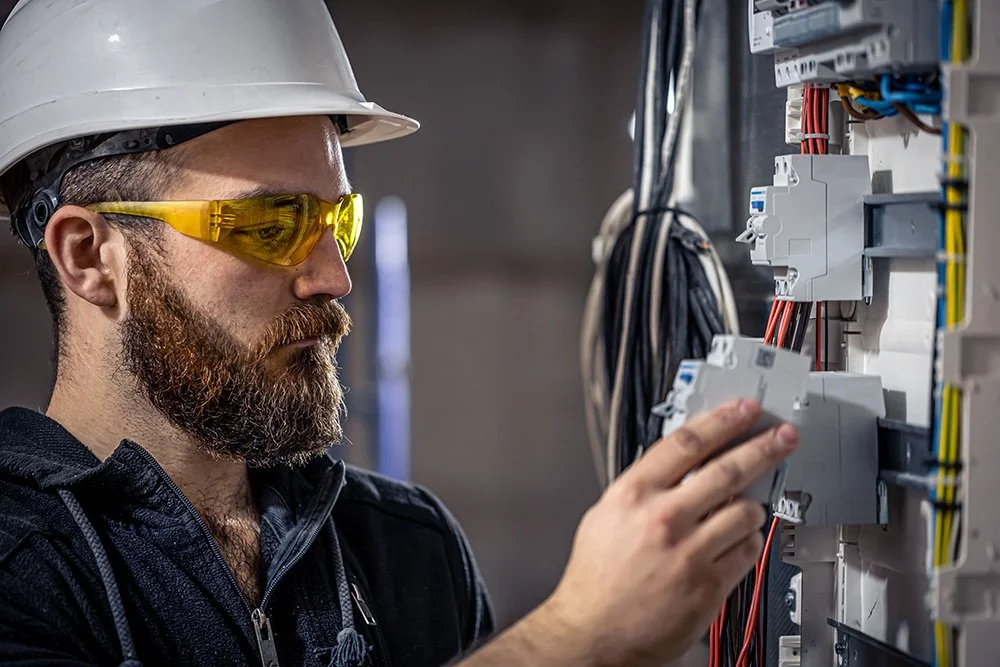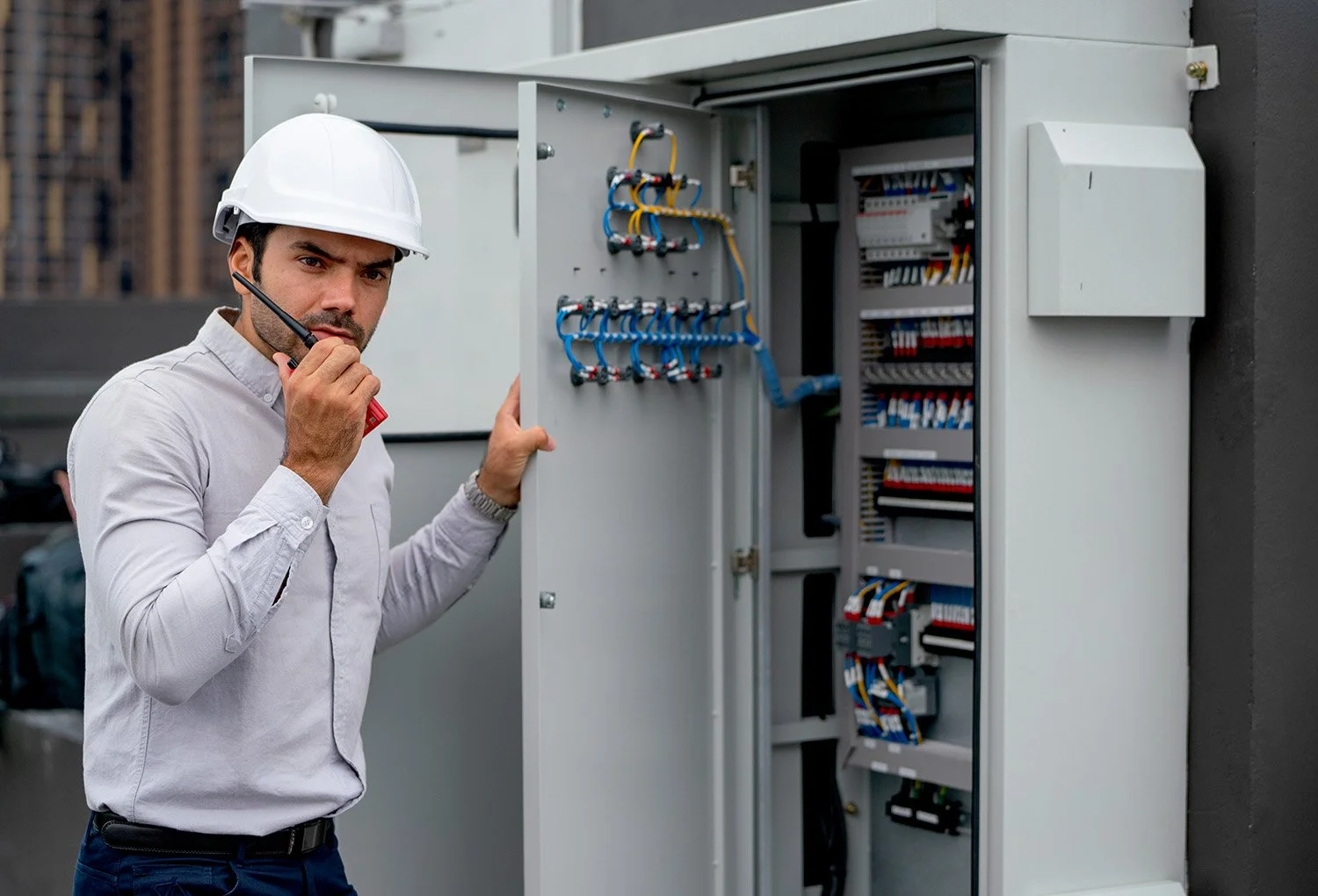NFPA 70E: Electrical Safety in Manufacturing
Electrical safety starts before the switch is flipped.
Electrical hazards strike fast—often without warning. Just one spark, one misstep, or one ignored safety protocol can lead to catastrophic consequences, shutting down your operations and endangering lives. Electrical incidents consistently rank among OSHA’s most frequent citations, driving significant costs, downtime, and injuries in manufacturing facilities. NFPA 70E compliance is more than just a regulation. It’s a commitment to protecting your people, your productivity, and your reputation.
Core Areas of Electrical Safety
Why NFPA 70E Matters
Key hazards NFPA 70E protects against
Each year, thousands of workers face severe injuries from electrical incidents. These incidents don’t just hurt your employees—they damage your productivity, profitability, and reputation. NFPA 70E isn’t merely regulatory compliance; it’s a framework for preventing devastating accidents before they happen.
Arc Flash
Sudden release of electrical energy, causing intense heat and burns.
Arc Blast
Explosive pressure caused by severe electrical faults.
Shock
Direct contact with energized electrical circuits, potentially fatal.
Electrocution
Resulting from exposure to lethal electric currents.

Real safety isn’t just gear.
It’s knowing what you’re touching.
Beyond Regulations
Timpl’s NFPA 70E Compliance
Compliance is where safety starts, not where it ends. At Timpl, we surpass basic regulatory requirements
Risk Assessments
Detailed analyses identifying electrical hazards and safe working distances.
PPE Selection & Training
Customized PPE recommendations and hands-on usage training for workers exposed to electrical hazards.
Labeling & Signage
Clear, highly visible identification of electrical hazards on equipment
Comprehensive Documentation
Meticulous record-keeping for inspections, training, incidents, and corrective actions.
FAQ
-
NFPA 70E is a detailed standard developed by the National Fire Protection Association to ensure electrical safety in workplaces. It outlines practices and requirements to protect workers from electric shock, arc flash, and arc blast hazards.
-
An arc flash is a sudden release of electrical energy through the air, causing intense heat, severe burns, and potential fatalities. It can occur unexpectedly due to faults, corrosion, or improper handling of energized equipment.
-
Any employee working with or around energized electrical equipment needs NFPA 70E training. This includes electricians, maintenance workers, machine operators, and supervisors who manage electrical equipment.
-
We don’t just meet OSHA standards—we surpass them. Our approach blends rigorous inspections, hands-on employee training, and tailored safety solutions to ensure comprehensive protection that actively supports your people’s daily work.
-
Electrical equipment inspections should be performed regularly, at intervals recommended by NFPA 70E and based on the specific operational demands and conditions within your manufacturing facility—typically ranging from annual to quarterly inspections.
Ensure Electrical Safety. Protect Your People.
Let’s discuss your NFPA 70E compliance strategy—15 minutes now can save lives, time, and productivity tomorrow.








